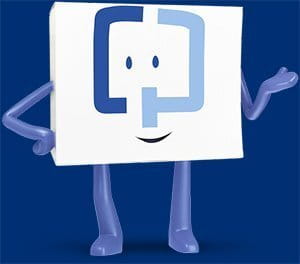Real Cologuard®
story: Nina
Screened with Cologuard
Nina’s love for adventure gets stronger with age.
She loves zipping down the road on a motorcycle as much as she loves visiting a new country – so long as it is with her husband, Paul. Their greatest purpose as a family of two is taking care of one another, and Nina knows that starts with taking good care of herself.
That’s why Nina made sure to visit her healthcare provider each year, who reminded her about the importance of on-time preventive health screenings. Though Nina made sure to stay up to date with routine visits and screenings like mammograms, she admitted she had not yet screened for colon cancer – she was 53 at the time.
During a yearly visit in 2017, Nina’s healthcare provider asked Nina if she would be willing to get screened with Cologuard. Nina was at average risk, and admitted she was interested in a noninvasive option. Her healthcare provider suggested Cologuard, which can be used at home with no special preparation or time off work.
Encouraged by having an option she could complete quickly and privately, Nina agreed she would be willing to get screened with Cologuard.
“I did the test at home, shipped it, and I was done,” she said. “The test was easy to use.”
It did not take long for Nina’s healthcare provider to share the result, which was positive. A colonoscopy revealed two precancerous polyps, which were removed. “It was such a shock to me,” Nina said. “Nobody thinks it will happen to them.”
Though Nina admits she and Paul were anxious, she said she was grateful she agreed to get screened when she did.
Nina did not require any additional treatment and continues to visit her gastroenterologist, who shared the importance of early detection with Nina.
“He told me that — if left untreated — I could have been in big trouble,” she said.
This was transformative for Nina, who took the initiative to educate herself about colon cancer and the importance of screening on time. Nina’s experience compelled her to share her story with others – even holding her friends accountable for screening on time.
“I called my best friend who is 55 to remind her to get screened,” Nina said. “I want us to be friends for a really long time.”
Now, Nina is excited to go on another adventure with Paul – enjoying the sunshine in the south of France. They have so many more adventures planned, and Nina is grateful to have peace of mind to enjoy each one.
“There is no reason not to be screened,” she shared. “Everybody needs to know.”
Cologuard is intended to screen adults 45 years of age and older who are at average risk for colorectal cancer by detecting certain DNA markers and blood in the stool. Do not use if you have had adenomas, have inflammatory bowel disease and certain hereditary syndromes, or a personal or family history of colorectal cancer. Cologuard is not a replacement for colonoscopy in high risk patients. Cologuard performance in adults ages 45-49 is estimated based on a large clinical study of patients 50 and older. Cologuard performance in repeat testing has not been evaluated.
The Cologuard test result should be interpreted with caution. A positive test result does not confirm the presence of cancer. Patients with a positive test result should be referred for colonoscopy. A negative test result does not confirm the absence of cancer. Patients with a negative test result should discuss with their doctor when they need to be tested again. False positives and false negative results can occur. In a clinical study, 13% of people without cancer received a positive result (false positive) and 8% of people with cancer received a negative result (false negative). Rx only.

